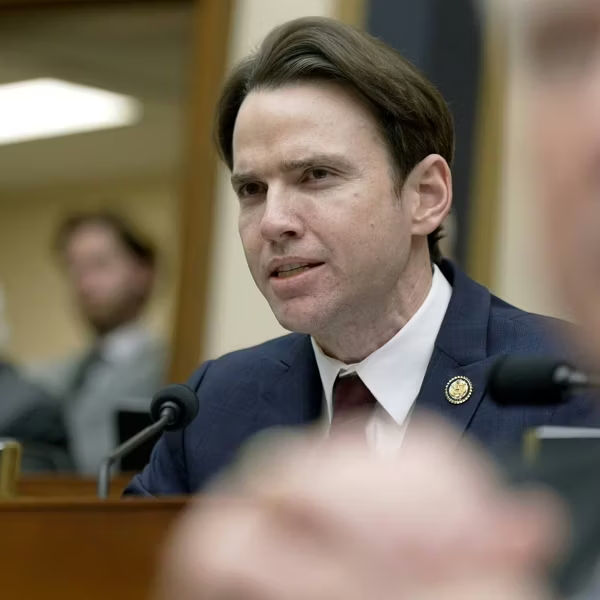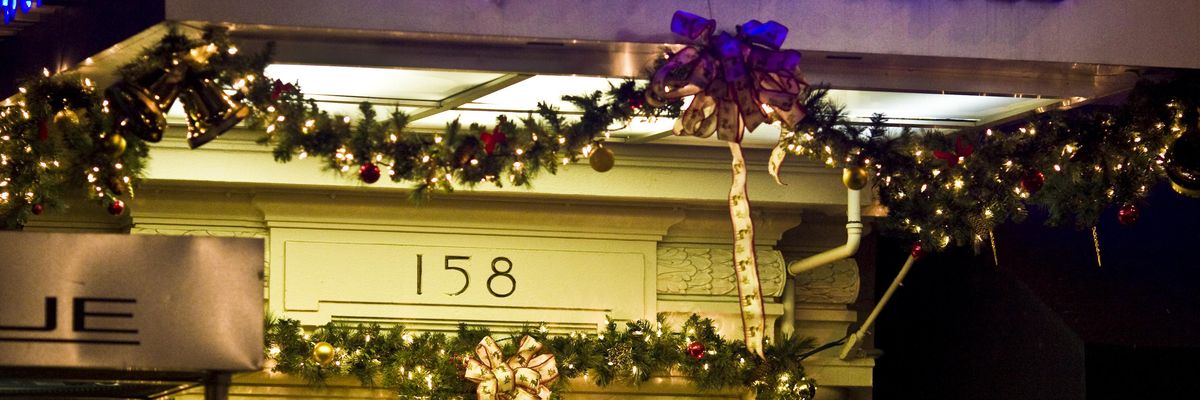After dumping hundreds of thousands of dollars into a hostile anti-homeless campaign, wealthy residents in one of the most expensive neighborhoods in New York City have officially lost their legal battle to prevent the opening of a local hotel that has been converted into a rapid re-housing program.
"Nestled in between a 24-hour parking structure and an apartment building on a predominantly residential street" near Central Park, the Park Savoy Hotel "blends in with the other hotels in the neighborhood," The Guardian reported Friday. The key difference is that its occupants are unhoused workers--not the business travelers or tourists preferred by many rich people living on so-called Billionaires Row, a nearby cluster of recently built luxury high-rises.
The shelter, which "quietly opened its doors in early November," the newspaper noted, "is designed to house up to 80 men and is known as an 'employment shelter' meant for those who are seeking employment or who are actively employed, especially in midtown Manhattan."
For over three years, its opening was delayed by wealthy opponents, who spent more than $300,000 in an ultimately unsuccessful effort to stop it--"the longest and the most-well-funded litigation" against any shelter in New York City history, according to Steve Banks, commissioner for the city's Department of Homeless Services.
In 2017, Mayor Bill de Blasio launched a new initiative to address homelessness in New York City, where nearly 123,000 different individuals used the municipal shelter system in fiscal year 2020. His initiative included plans to open roughly 90 new shelters to accommodate the United States' largest population of unhoused people.
"They'll be in every kind of neighborhood," de Blasio said at the time.
According to The Guardian:
The Park Savoy shelter was slated to open in spring 2018, but the city entered a lengthy legal battle with residents and business owners in the area who vehemently opposed the shelter and formed a group, called the West 58th Street Coalition, to block it.
An online petition created in 2018 against the hotel, calling it a threat with "an enormous impact on our densely populated, narrow, high pedestrian-traffic street," garnered nearly 3,500 signatures. Members of the coalition argued that the city did not receive community input when starting plans to open the shelter and called the building "a dangerous fire trap."
[...]
Determined to stop the shelter, the West 58th Street Coalition filed lawsuit in 2018 that argued the building was too "unsafe" for occupants and that "crime and loitering" caused by the shelter would lead to "irreparable injuries." The coalition also spent at least $287,000 toward lobbyists advocating against the shelter, according to nonprofit news site The City. They spent another $100,000 on billboards in Iowa meant to prod de Blasio during his brief run for president in 2020.
Despite the West 58th Street Coalition's costly and dehumanizing effort to kill the Park Savoy shelter, a state appellate court in May gave the city final approval to open it.
Jacquelyn Simone, policy director at the advocacy group Coalition for the Homeless, argued that the court's ruling demonstrates that cities can overcome lawsuits seeking to shut down shelters.
"One must ask who would have benefited from the Park Savoy shelter if it hadn't been stalled for this many years," she told The Guardian.
Simone added that opponents of housing support programs typically have "a lot of fears and anxiety that don't actually materialize once the shelters open."
Last month, Catherine Trapani, executive director of the advocacy group Homeless Services United, told The City that "of course we want permanent housing solutions, and we're going to continue to work towards that, but in the meantime, these guys need a place to go."
Trapani said that she is glad the Park Savoy Hotel "will get to be used by people who need it." She pointed out "how shameful it is" that the West 58th Street building went unused for several years.
"We went through an entire pandemic, and record-high [numbers] of single adults in the shelter system," she added, "and this sat empty."




